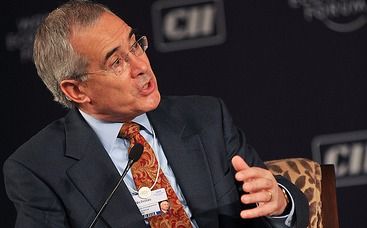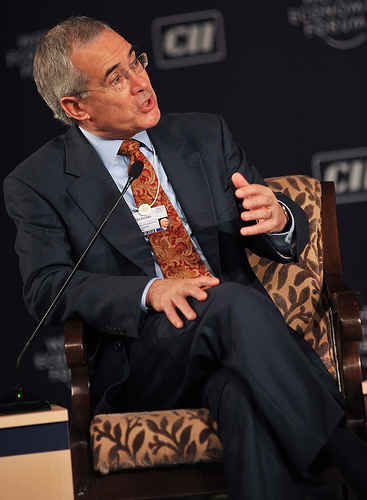Lord Stern: avoid dangerous warming with ‘industrial low-carbon revolution’
People and business must realise that the battle against climate change ‘involves industrial revolution’, and people must be ready for radical change, according to Lord Nicolas Stern of Brentford, author of the 2006 Stern Review into the economics of climate change. He spoke at London School of Economics about his vision for the low-carbon revolution.

 People and business must prepare for radical change and a low-carbon industrial revolution to prevent dangerous warming, according to Lord Nicolas Stern.
People and business must prepare for radical change and a low-carbon industrial revolution to prevent dangerous warming, according to Lord Nicolas Stern.
Speaking to an audience at LSE, Lord Stern said: “High-carbon growth is not a serious option…Anything like business as usual will create an environment so hostile, and a movement of people and conflicts, that it will halt and reverse development and growth.”
Lord Stern, author of the 2006 Stern Review on the Economics of Climate Change, released by the British government, said that at the current rate, there is roughly a 50 per cent chance of going above a rise in average global temperature of 5ºC since the mid 19th Century.
He urged businesses to invest in low carbon technologies so as not to miss out on what he believes is an exciting opportunity and warned governments that failing on climate change would mean also failing on the fight against world poverty.
As populations move away from the equator to cooler areas, and even away from Southern Europe which could become as warm as the Sahara Desert it will cause “severe and global conflict” according to Stern.
The only way to prevent this dangerous rise, and lower the average carbon emissions from seven to two tonnes per person is to move away from what he calls “the greatest market failure of all time: greenhouse gases” and develop a low-carbon industrial revolution. However he believes this prospect is nothing to dread.
“It will involve radical change in the way we do things. The good news is that when you start to look at that radical change it becomes a rather attractive proposition. It will involve investment and will involve dislocation; industrial revolutions involve both those things, it doesn’t come for free, but it is, I think, when you start to look at the details an exciting prospect.”
Lord Stern believes a low-carbon revolution would provide business not only with an exciting opportunity but also a more stable future. It would provide growth that was more energy efficient; more secure; more equitable; safer; cleaner; and biodiverse.
However he pointed towards the many obstacles that still stand in the revolutions way. The industry needs to deal with the market failures; create international standards for new business and technology; and produce wider procurement policies that will drive market confidence.
He also stresses that the market must be predictable enough to build confidence in those making investments, while at the same time being flexible enough to take the opportunities that new, emerging technologies may bring.
The fight against climate change, according to Lord Stern, has it’s heart in economic development and it’s promotion. No just economic development in one country but across the world. For example countries such as China, India and Korea can offer valuable lessons to the UK, in new low-carbon technologies.
He said: “I believe the two defining challenges are limiting climate change and overcoming world poverty. If we fail on one we fail on the other, if we fail to manage climate change we destroy development…We are all bound together through the story of the new industrial revolution of green growth.”
Image: World Economic Forum | flickr



